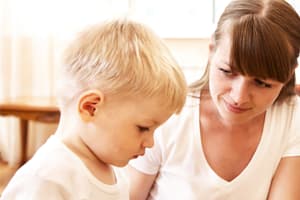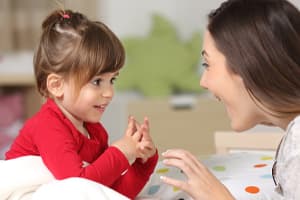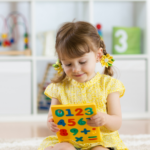
Top tips: Supporting nursery children to manage feelings
Managing feelings and behaviour is a crucial element of Personal, Social and Emotional Development (PSED) for nursery children. Here are our NDNA early years expert’s tips on supporting PSED at your nursery.

Personal, Social and Emotional Development is a prime area of learning within the Early Years Foundation Stage (EYFS) framework (2017).
As an early years practitioner, you must be supporting children’s development in this area by providing children with opportunities to experience and explore a range of different interactions and emotions from a secure base.
Through meaningful interactions and experiences, children can develop a strong sense of self, affecting their self-esteem and happiness.
Research into the best ways of supporting children’s PSED is something that is changing all of the time. As we learn more about the way in which children gain knowledge, the ways in which we as practitioners support this area, are also changing.
There are some great resources out there to support PSED, however, nothing can replace the power of positive interactions with experienced and knowledgeable practitioners.
By using some of the tools below, you can equip the children in your care with the skills for success!
Recognising and labelling feelings:
Whilst labelling feelings can be helpful in helping them to recite different emotions, actually discussing how these feelings affect you physically can support children to know and identify what they are feeling.
For example, ‘When I feel worried, it can feel like lots of butterflies fluttering in my tummy’ or ‘You look happy today, your smile is so big and you are laughing a lot.’

Specific praise
Nearly all early years children enjoy recognition and praise for their achievements. However, this praise needs to be meaningful.
By using phrases like ‘good girl’ and ‘good boy,’ children do not always attach their efforts to the praise given. Instead, simply say what you see and the type of characteristic it demonstrates, this can have an impact on how children see themselves.
For example, ‘You’re tidying the toys away, without being asked! That’s very helpful.’
Positive role-models
There is a common misconception that as adults, we should not allow children to see us struggle. Whilst it is necessary to remain professional within your role, it is important to role model reactions to experiences.
If children see a trusted adult label an emotion and then model how they deal with it, they are much more likely to manage their own behaviours when faced with similar situations.
For example, ‘When I feel sad, I like to spend time with my friends,’ or ‘Sometimes I feel worried, but when I do, I like to do something relaxing, like read a book or listen to music.’
Supporting children to manage their feelings and behaviour is a big but extremely rewarding task. If children can develop emotionally resilient behaviours in their early years, they have a strong foundation upon which to build for the rest of their lives.

More support
For more tips on supporting children of all ages with their personal, social and emotional development, we have launched an online course, written by our early years experts.
It’ll support you to help children to become self-confident, make strong relationships and manage their feelings.
- Emotions
- PSED



